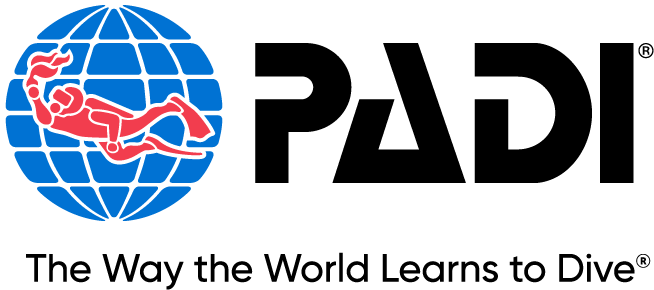
How to Get Your Advanced Diver Certification
Are you ready to take your diving skills to the next level? If you’ve already completed your Open Water Diver certification and are eager to dive deeper—both figuratively and literally—then earning your Advanced Open Water Diver certification is the next exciting step in your diving journey.
Whether you’re looking to explore new dive sites, enhance your underwater skills, or challenge yourself in different types of diving, the Advanced Diver course opens up a world of opportunities. Here’s everything you need to know to get your Advanced Diver certification.
Prerequisites for the Advanced Diver Course
Before you can enroll in the Advanced Open Water Diver course, there are a few prerequisites to meet:
- Open Water Diver Certification: You must have completed your Open Water certification or an equivalent from a recognized diving organization.
- Age Requirement: You need to be at least 12 years old to take the course, but the course is open to divers of all ages.
- Good Health: You should be in good physical health, with no medical conditions that could interfere with your ability to dive safely. If you have any concerns, it’s a good idea to get a medical clearance from your doctor.
What to Expect During the Course
The Advanced Open Water Diver course is typically a 2-3 day program that blends classroom learning with practical in-water experience. The course is divided into two main parts:
The Five Adventure Dives
The Advanced Diver course includes five specialty dives that allow you to explore different aspects of diving. These dives are designed to expand your skills and knowledge while giving you the chance to try different types of diving. The five required dives are:
- Deep Dive: You’ll dive to depths of up to 30 meters (100 feet), which allows you to explore deeper dive sites and gain experience with deep diving procedures.
- Navigation Dive: This dive focuses on improving your navigation skills, including using a compass and natural navigation techniques, so you can confidently find your way underwater.
You’ll also choose three elective dives based on your interests. Some popular options include:
- Night Dive: Discover the underwater world after dark and see how marine life changes at night.
- Wreck Dive: Explore sunken ships, planes, or structures while learning about wreck diving safety.
- Search and Recovery Dive: Learn techniques for locating and retrieving objects from the underwater environment.
- Underwater Photography: Practice taking pictures underwater while learning how to deal with the unique challenges of underwater photography.
These elective dives allow you to personalize your certification based on what you want to learn or experience.
Theory and Knowledge Development
While the focus of the course is on practical diving, there will also be some classroom learning involved. You’ll cover topics like dive tables, dive planning, dive site selection, and safety procedures. Most diving schools provide study materials and online resources to help you prepare.
The Skills You’ll Master
Throughout the course, you’ll work on enhancing your diving skills, including:
- Buoyancy Control: Improve your buoyancy skills to dive effortlessly and safely.
- Dive Planning: Learn how to plan and manage your dives, taking into account depth, time, and other environmental factors.
- Safety Protocols: Refresh your knowledge of dive safety and emergency procedures to handle unexpected situations with confidence.
- Underwater Problem Solving: Practice handling common underwater challenges and learn how to deal with potential equipment failures or other issues that may arise during a dive.
The Benefits of Getting Your Advanced Certification
Once you complete the course and earn your Advanced Diver certification, you’ll gain several key benefits:
- Increased Depth Limits: With your certification, you’ll be able to dive deeper, up to 30 meters (100 feet), and experience a whole new world of dive sites.
- More Dive Opportunities: Many dive shops and dive locations require an Advanced certification for certain dives, like deep dives or wreck dives, so you’ll have access to a wider range of diving adventures.
- Increased Confidence: The training you’ll receive will make you a more skilled and confident diver, capable of handling various diving situations and enjoying your dives to the fullest.
- Specialty Dive Options: After completing your Advanced Diver course, you’ll have the foundation to pursue additional specialty certifications, like Enriched Air Nitrox or Rescue Diver.
How to Prepare for Your Advanced Diver Course
Preparation is key to getting the most out of your Advanced Diver course:
- Review Basic Dive Skills: Make sure you’re comfortable with the skills you learned in your Open Water Diver course, including mask clearing, buoyancy control, and emergency procedures.
- Research the Dives: Think about which elective dives you’d like to try and learn more about them. This will help you get excited and prepared for the course.
- Talk to Your Instructor: Your dive instructor will be a great resource throughout the course. Ask questions if you’re unsure about anything before, during, or after the course.
- Stay Fit: While diving doesn’t require intense physical fitness, it’s helpful to be in good general health and physical condition.
Ready to Dive In?
Getting your Advanced Diver certification is an exciting and rewarding experience that opens the door to a whole new world of diving adventures. Whether you want to dive deeper, explore wrecks, or learn new skills, the Advanced Open Water Diver course will help you grow as a diver and give you the confidence to tackle new challenges underwater.


